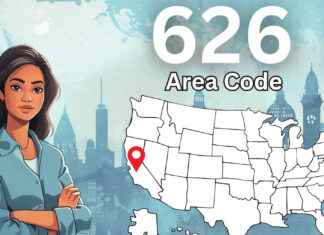Russian President Vladimir Putin reiterated after meeting with Turkish President Tayyip Erdogan on Monday that Russia is willing to return to the Black Sea grain deal. But Putin continues to impose the same conditions on the West: above all, reconnecting the Rosselkhozbank agricultural bank with SWIFT, also obtaining spare parts for agricultural machinery and unblocking transport logistics and insurance. He also calls for rescuing the Tolyatti-Odessa ammonia pipeline and unfreezing the assets of Russian companies.
The leaders of both countries spoke for three hours. Despite the cordial language, the Russian leader has not retreated from any of his positions. “We will be willing to renew the grain agreement once all commitments are met,” Putin reiterated, assuring that “grain prices are falling, there is no food shortage.” In any case, he assured that “we were forced to withdraw from the grain agreement.”
The Russian leader announced on the other hand that “we are close to an agreement for the supply of free food to Africa”, and that the supply will begin “in the next two or three weeks.” This is a different route of aid that Russia put on the table to supply African countries with a small part of the grain they lack, as a result of the Russian blockade of Ukrainian ports, and in the process appease the Kremlin’s image crisis. in emerging countries that are exposed to famine.
Russian spokesman Dimitri Peskov had said during the meeting that the first part of the talks had been very constructive, but that the signing of documents was not expected at the end of the meeting. For Erdogan, the summit, which also reviewed key joint projects for the Turkish economy, is a way to vindicate himself to the West and emerging countries as a reliable mediator for global stability. Before the meeting, Putin had told Turkey’s leader that he was willing to discuss the grain deal. A pact that Russia abandoned in July. But Putin reiterated his litany of complaints and an agreement, as of today, is not in sight.
Erdogan, in any case, was optimistic. “We believe that we will reach a solution that will meet expectations in a short time,” the Turk said in the Russian resort town of Sochi, on the Black Sea, after his first face-to-face meeting with Putin since 2022. The Turkish leader noted that the Russia’s expectations were well known to all and that deficiencies had to be eliminated, adding that Turkey and the UN had worked on a new package of suggestions to alleviate Russian concerns.
Russia has blockaded Ukrainian Black Sea ports since it invaded its neighbor and threatened to treat all ships as potential military targets after withdrawing from the U.N.-backed deal that allowed Ukraine to export tens of millions of tons of agricultural products. for a few months.
Turkey and the United Nations have since been trying to revive a grain export deal that helped ease a global food crisis. UN Secretary General António Guterres said last Thursday that he had even sent Russian Foreign Minister Sergei Lavrov “a set of concrete proposals” aimed at reviving the agreement.
Russia and Ukraine are two of the world’s leading agricultural producers and are important vectors in the markets for wheat, barley, corn, rapeseed, sunflower seeds and oil.
Putin has maintained during these months that he could return to the grain agreement if the West complies with a memorandum, apart from the one agreed with the United Nations to facilitate Russian exports of food and fertilizer. But in reality, these Russian exports are not subject to Western sanctions imposed by the invasion of Ukraine. Still, Moscow maintains that restrictions on payments, logistics and insurance have hampered shipments.
One of Moscow’s main demands is that the Agricultural Bank of Russia be reconnected to the international payment system. According to EU sources, this bank did not have a relevant role in payments and collections in the past, but rather was focused on financing projects. But the entity is related to the Ministry of Agriculture, which is in the hands of Dimitri Patrushev, the son of Nikolai Patrushev, secretary of the Russian Security Council. ‘Patrushev junior’ was chairman of the board of that bank that Moscow is now so interested in reconnecting with the financial system, although it is not public whether he retains shares or not.
Faced with the blockade, Ukraine announced its “humanitarian corridor” that borders the western coast of the Black Sea, near Romania and Bulgaria. On Sunday, a third ship, the Liberian-flagged Anna-Theresa, left the Black Sea via Istanbul after passing through that corridor.
Russia has been discussing an initiative by Putin these months to supply up to one million tons of Russian grain to Turkey at reduced prices for further processing in Turkish plants and shipping to the countries most in need.
But before the war, Ukraine exported approximately 25 to 30 million tons of corn a year, mainly through the Black Sea, and 16 to 21 million tons of wheat. The cancellation of a good part of this offer cannot be easily replaced.






